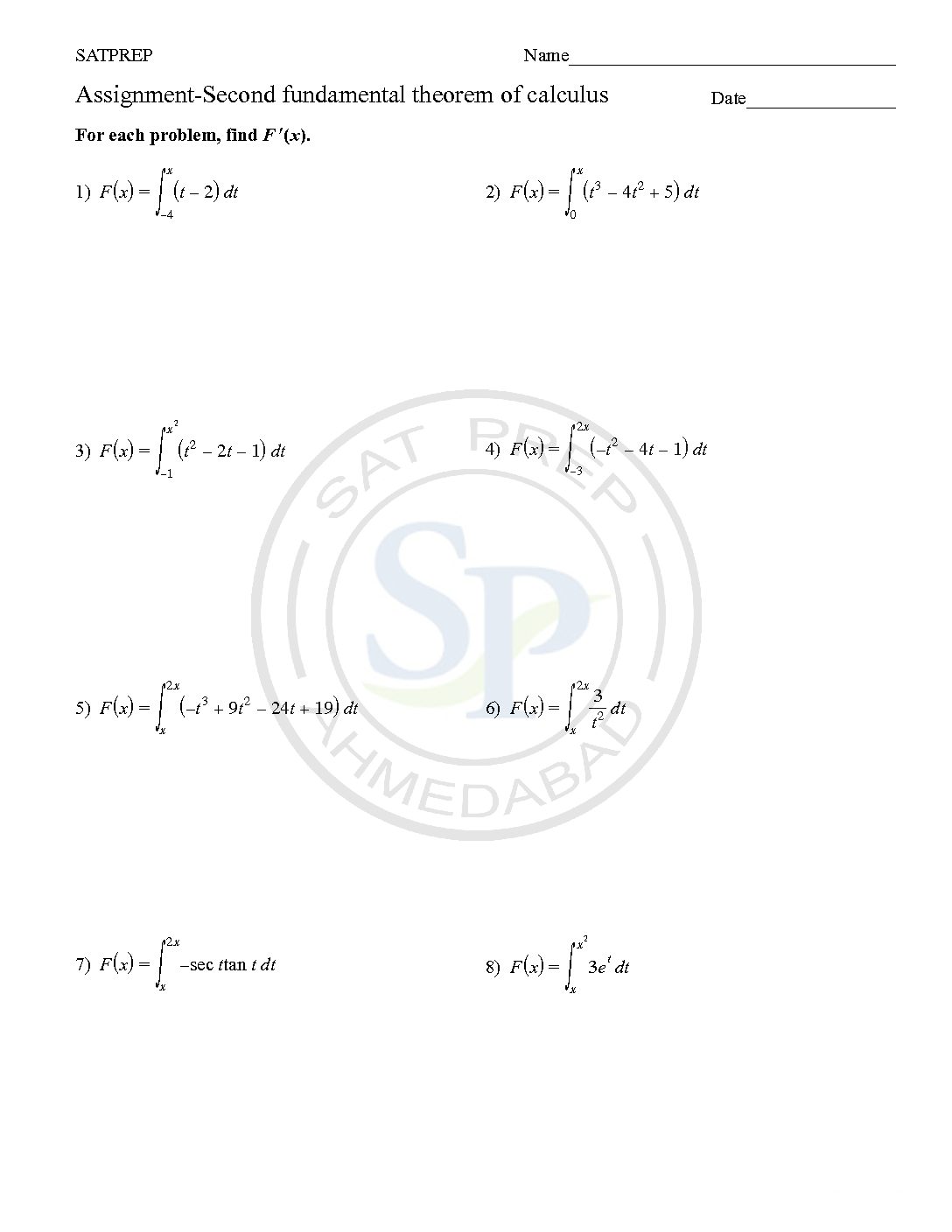Then F ( x) is an antiderivative of f ( x )—that is, F ‘( x) = f ( x) for all x in I. That business about the interval I is to make sure we only get limits of integration that are are reasonable for your function. Some things that wouldn’t be reasonable: Choosing a = -1 for the function .
The Second Fundamental Theorem of Calculus is the formal, more general statement of the preceding fact: if f is a continuous function and c is any constant, then A(x)=∫x cf(t)dt is the unique antiderivative of f that satisfies A(c)=0.
second fundamental theorem of calculus
